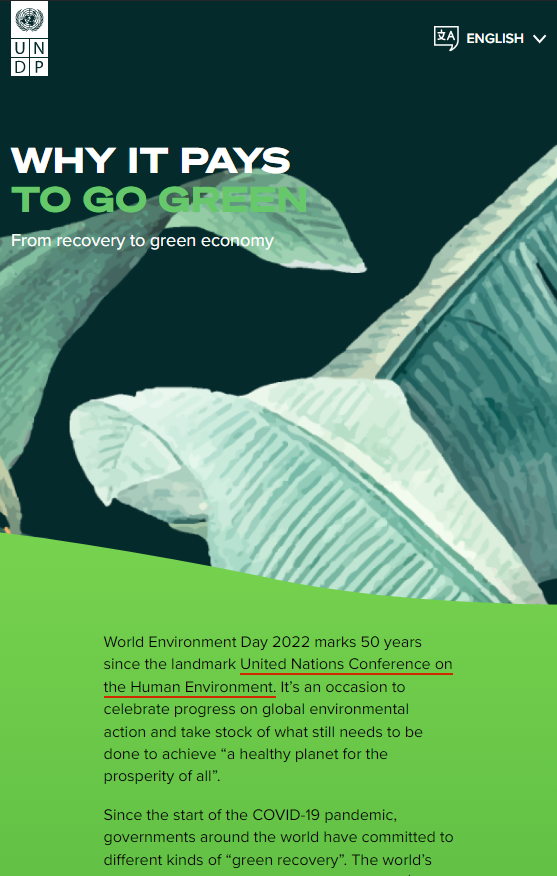
- Details
"World Environment Day 2022 marks 50 years since the landmark United Nations Conference on the Human Environment. It’s an occasion to celebrate progress on global environmental action and take stock of what still needs to be done to achieve “a healthy planet for the prosperity of all”.
Since the start of the COVID-19 pandemic, governments around the world have committed to different kinds of “green recovery”. The world’s leading economies have delivered over US$20 trillion in COVID-19 recovery investments over the past 18 months, designed to re-boot economies and address the root causes of the nature-climate crises.
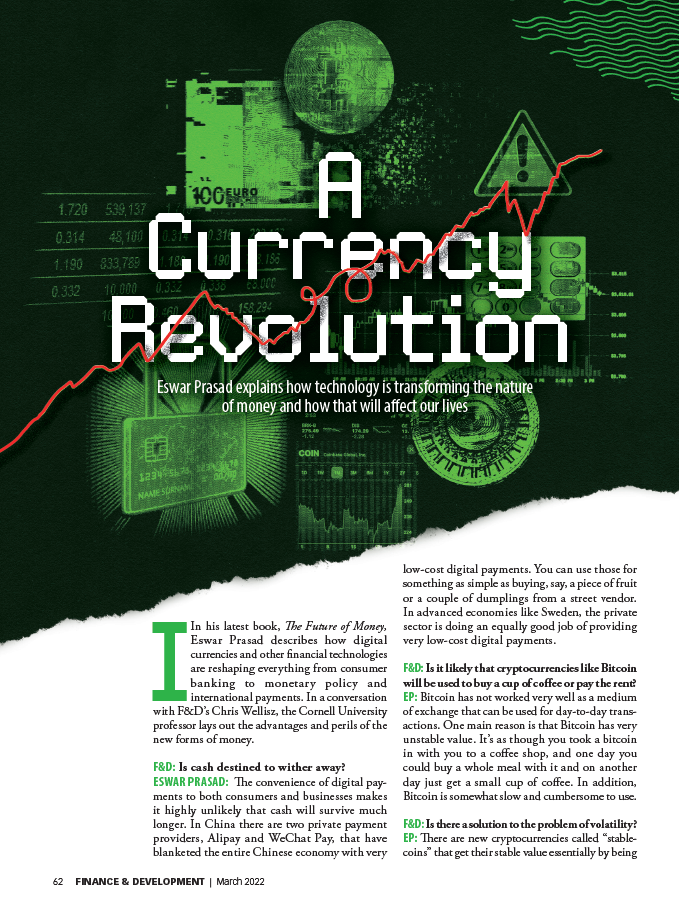
- Details
"In his latest book, The Future of Money: How the Digital Revolution Is Transforming Currencies and Finance, the Cornell University professor describes how digital currencies and other financial technologies are reshaping everything from consumer banking to monetary policy and international payments. In a conversation with F&D’s Chris Wellisz, Prasad lays out the advantages and perils of the new forms of money."
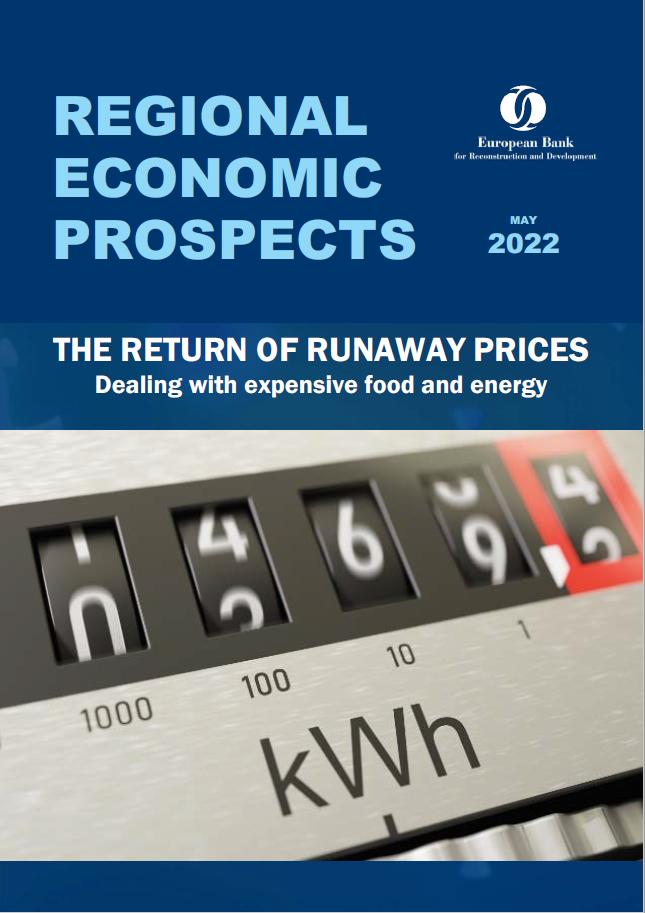
- Details
Increases in food and energy prices added to inflationary pressures, which were already high before the war on Ukraine. Some economies are further affected through trade, tourism and remittance links and a reassessment of geopolitical risks.
Read more … The Return of Runaway Prices: Dealing with Expensive Food and Energy
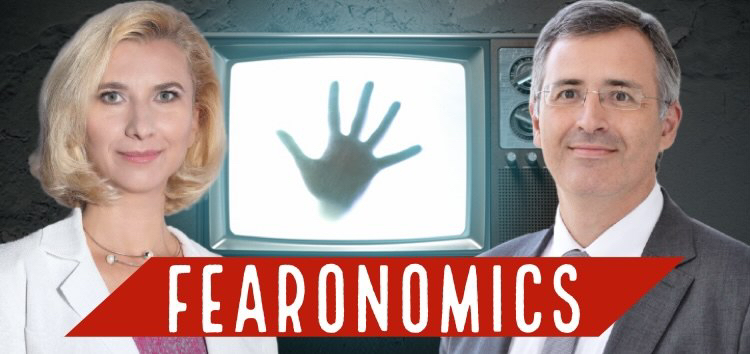
- Details
In the new episode of the EBRD’s Fearonomics podcast Jonathan Charles, the EBRD’s Managing Director of Communications, Sergei Guriev, former EBRD Chief Economist and now Professor of Economics at Science Po, and Beata Javorcik, the EBRD’s current Chief Economist, examine the threat to our economies from inflation and whether we risk an era of stagflation.
Policymakers had to step up support for businesses and the population at large when Covid-19 was at its worse. The strain on public budgets was palpable – even before Russia’s war on Ukraine.
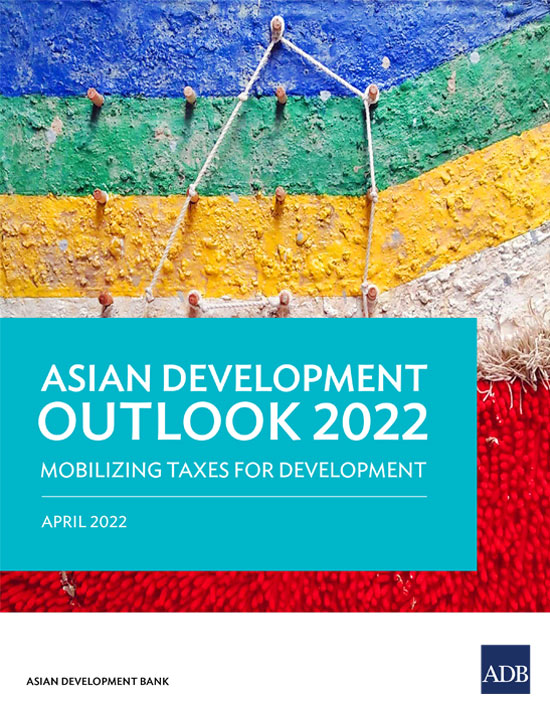
- Details
"The Asian Development Outlook analyzes economic and development issues in developing countries in Asia. This includes forecasting the inflation and gross domestic product growth rates of countries throughout the region, including the People’s Republic of China and India.
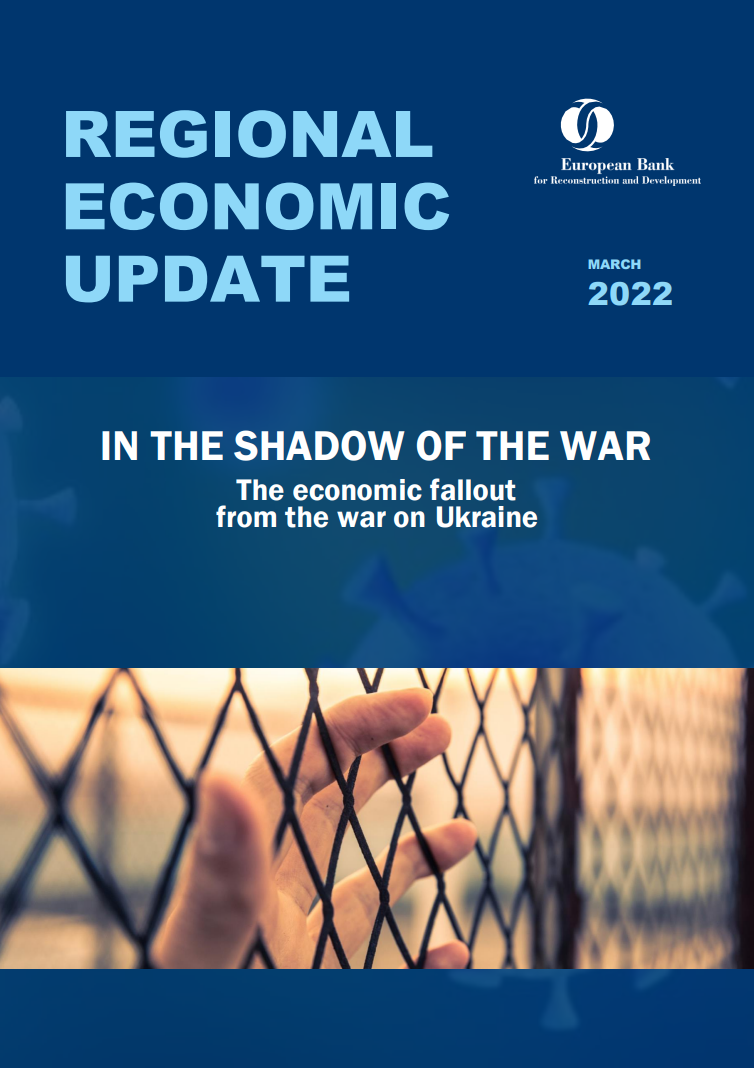
- Details
"The economies of the EBRD regions expanded by an estimated 6.6 per cent in 2021 after contracting by 2.6 per cent in 2020 as Covid-19-related restrictions were phased out and people’s mobility (movements to places of work and recreation) returned to pre-pandemic levels. Growth is expected to decelerate to 1.7 per cent is 2022, a downward revision of 2.5 percentage points relative to the forecast made in November 2021, as Russia’s invasion of Ukraine has been having a profound impact on the economies in the EBRD regions as well as globally. In 2023, growth in the EBRD regions is expected to pick up to 5 per cent. Projections are subject to an exceptionally high degree of uncertainty, including major downside risks should hostilities escalate or should exports of gas or other commodities from Russia become restricted."
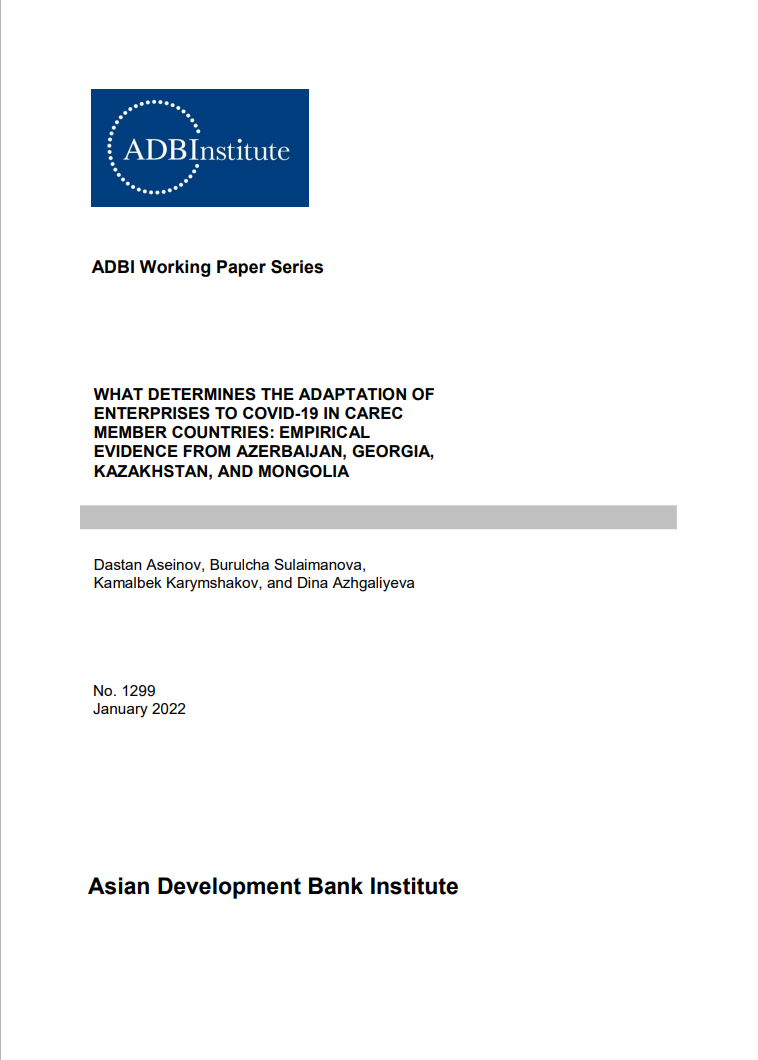
- Details
Authors of this research work investigate the factors affecting firms’ ability to adjust production in response to the COVID-19 outbreak. For the purpose of this research, four CAREC countries were chosen from the survey data conducted by the World Bank: Azerbaijan, Georgia, Kazakhstan, and Mongolia. "The results showed that firms which successfully adapted to the COVID-19 crisis were younger, foreign firms that had been innovative in the recent past, with female managers, a formal firm strategy with key performance indicators, and their own website."
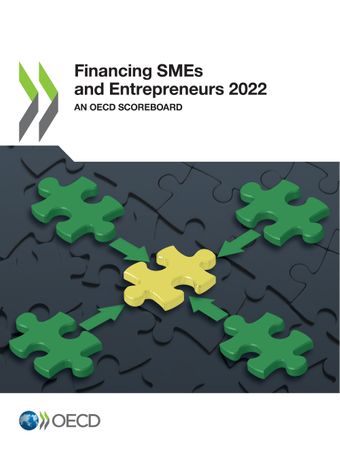
- Details
"The COVID-19 crisis caused profound disruptions in the global economy, with SMEs and entrepreneurs, particularly hard hit. Swift measures implemented by governments and public financial institutions provided a crucial lifeline for liquidity-strapped SMEs.
The 10th edition of Financing SMEs and Entrepreneurs 2022: An OECD Scoreboard sheds light on the impacts of the crisis on SME finance, tracking the latest developments in debt, equity, asset-based finance, and framework conditions, along with recent policy developments for 48 countries around the world. It shows that lending continued to flow to SMEs during the pandemic, with unprecedented growth in outstanding SME loans. What is more, credit conditions relaxed significantly: interest rates registered record lows, interest rate spreads narrowed considerably, and collateral requirements declined in most Scoreboard countries.
Read more … Financing SMEs and Entrepreneurs 2022: An OECD Scoreboard

- Details
"Whenever we buy something in a store, we can see on the receipt that VAT is added to the net sale price. However, VAT is not levied only on sales to final consumers: it also applies to all preceding transactions in the supply chain between businesses, reminiscent of a turnover tax. Without adjustment, this would cause cascading of taxes (payment of tax on tax), which creates major economic distortions.
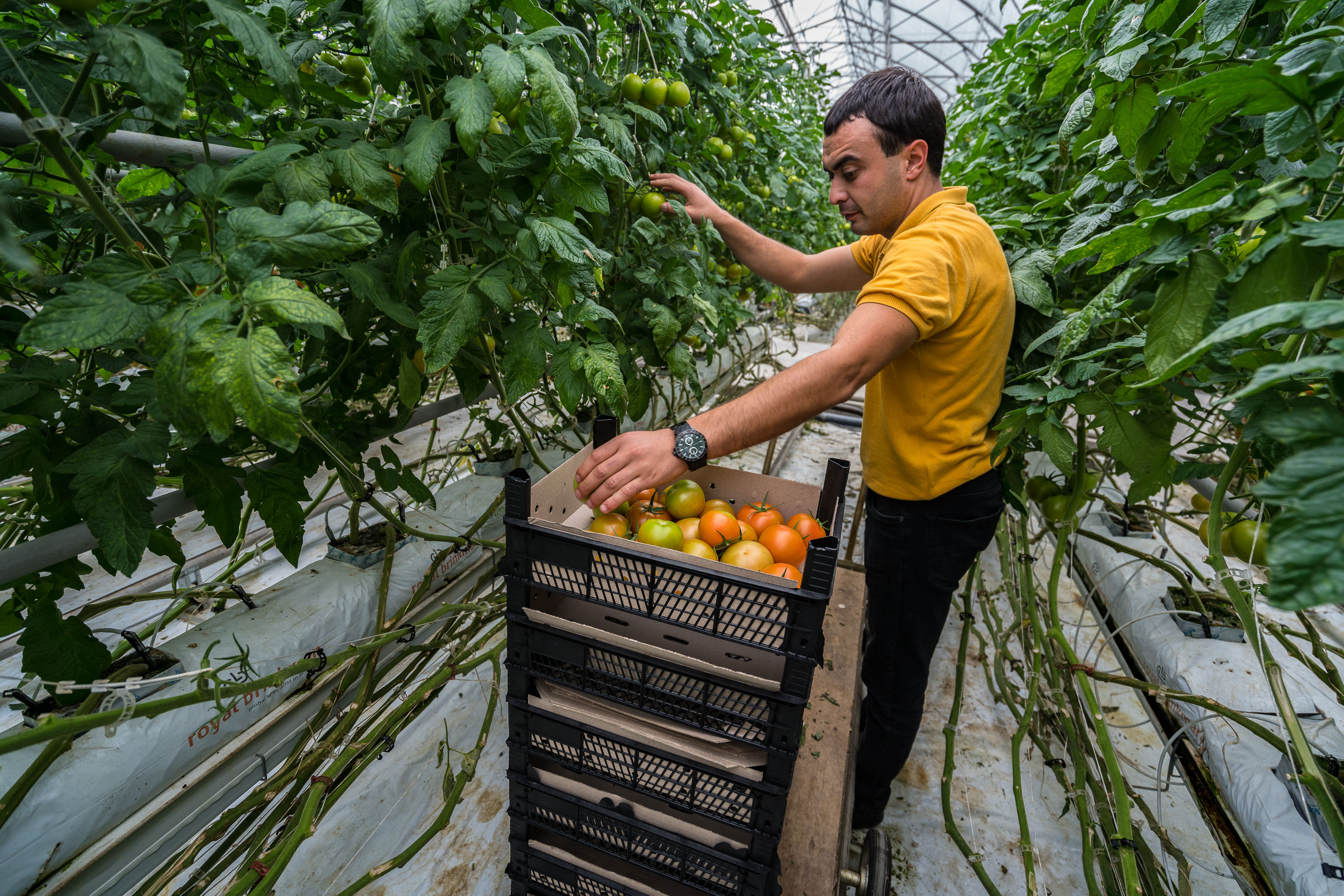
- Details
Agriculture is central to the climate crisis. While essential to human survival, it contributes to greenhouse emissions that pose a dire threat to humanity’s future.
Climate change has reduced global agriculture productivity by 21% since 1961, according to a recent study by Nature and Climate Change. At the same time, food systems represent a third of total greenhouse gas emissions and are a major contributor to biodiversity loss. According to the Food and Land Use Coalition, we need an estimated $350 billion annually to make agriculture practices greener and more resilient.
Read more … Q&A: How Can Agribusiness Help to Fight Climate Change?
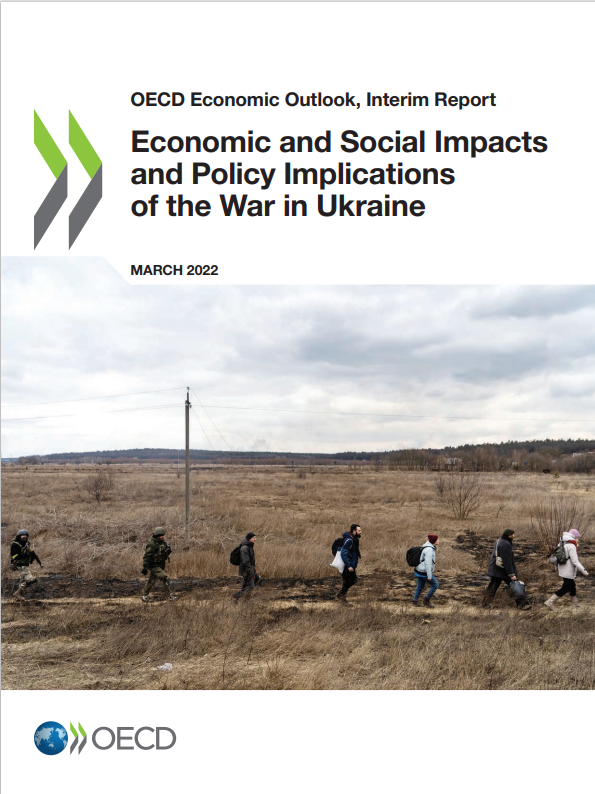
- Details
"The OECD Economic Outlook is the OECD’s twice-yearly analysis of the major global economic trends and prospects for the next two years. Prepared by the OECD Economics Department, the Outlook puts forward a consistent set of projections for output, employment, government spending, prices and current balances based on a review of each member country and of the induced effect on each of them on international developments.
Read more … OECD Economic Outlook, Interim Report March 2022
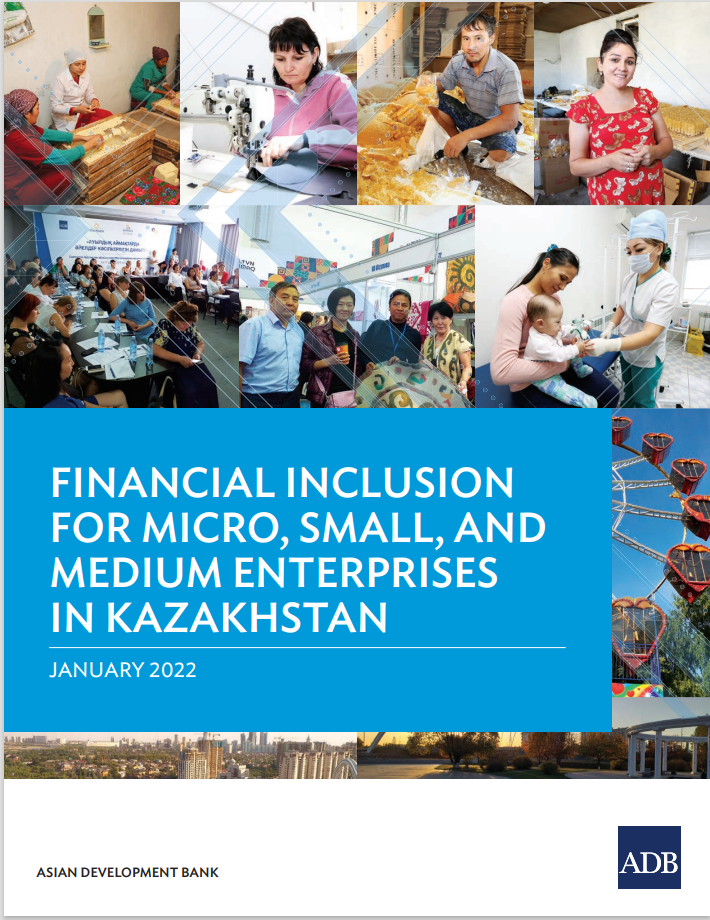
- Details
This report looks at financial inclusion in Kazakhstan and considers how microfinance organizations could boost lending to its fast-growing micro, small, and medium enterprises (MSMEs).
Read more … Financial Inclusion for Micro, Small, and Medium Enterprises in Kazakhstan


